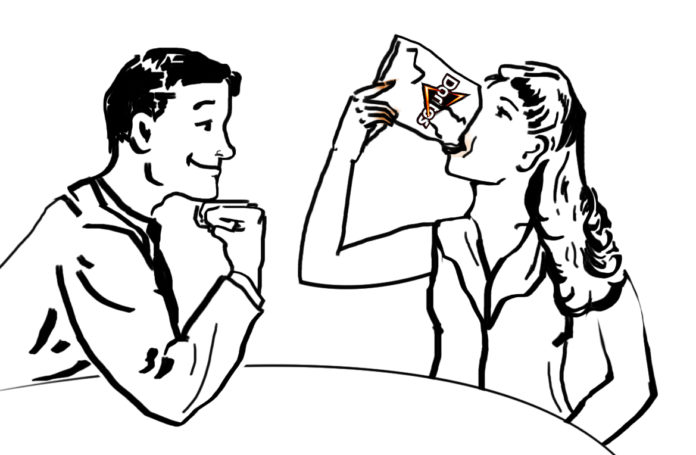“Show her it’s a man’s world.”
“Indoors, women are useful – even pleasant.”
“Keep up with the house while you keep down your weight.”
“Is it always illegal to kill a woman?”
These statements trigger a repulsive response to today’s consumers, but only 50 to 70 years ago, they were used in advertising to appeal to their audience’s values and beliefs. Companies benefited from marketing based on gender stereotypes, a practice that is still found in media today.
Indra Nooyi, PepsiCo chair and chief executive officer, alluded to the future production of “female-oriented Doritos” in an interview with Freakonomics in January. The so-called accommodations for women would create a crumb-less, crunch-less and dustless chip packaged in a bag small enough to fit into a purse.
Nooyi’s logic is that women withhold their behavior (such as getting crumbs from the bottom of the bag, crunching on their food or licking their fingers) due to public perception; women are more peculiar about dirtiness (that Dorito dust may create); women’s everyday belongings are constrained to the size of their purses.
Marketing such trivial, demeaning product features to a target-gender consumer audience supports regressive stereotypes.
Luckily, in this case, a spokeswoman for PepsiCo shot down the rumors, claiming “The reporting on a specific Doritos product for female consumers is inaccurate. We already have Doritos for women–they’re called Doritos, and they’re enjoyed by millions of people every day.” However, this type of gender-specific marketing is anything but novel.
Research shows that people instinctively gender things. The Journal of Consumer Marketing found that products are perceived to have a gender in order to mentally categorize things into groups based on perceived masculine and feminine traits. The Journal of Consumer Marketing explained that consumers “develop gender identities for themselves and products; abetted in part by gender images communicated through the mass media.”
While people gender products independent of media influence, the media still acts to inform, influence and reinforce gender assumptions. Multinational, billion-dollar companies such as PepsiCo have immense power and liberty in shaping gender stereotypes in their marketing strategies.
The Advertising Standards Authority in the United Kingdom announced the launch of efforts toward a “stronger regulation of ads that feature stereotypical gender roles or characteristics which might be harmful to people, including ads which mock people for not conforming to gender stereotypes” on July 18, 2017.
While the U.S. does not have an American equivalent of the U.K.’s Advertising Standards Authority, we do have a platform to let our opinion be known – social media.
In reaction to offensive marketing, such as Pepsi’s Black Lives Matter commercial and Dove’s racially insensitive advertisement, people took to social media to criticize these companies’ tactics. In response to public backlash, Pepsi and Dove pulled their ads and issued an apology within than 24 hours of the ads’ releases.
When a corporation exploits a feature of society to forward its economic ambitions, we should act as a collective whistleblower.
Media matters, because it depicts more than the independent marketing decisions of a corporation. It reflects popular culture. By taking a strong stance on the types of messages we accept and reject, we have the power to cultivate a more progressive media.






